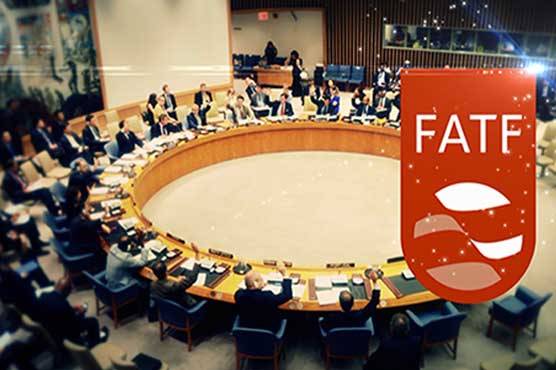
The Asia-Pacific Group has identified issues in Pakistan’s policies to combat money laundering and terror financing, which may cause Pakistan to remain on the grey list of the Financial Action Task Force.
In its peer review, the APG, an inter-governmental organization that reviews members’ adherence to international standards against money laundering and terror financing, the group adopted Pakistan’s Mutual Evaluation Report. This was announced by the Ministry of Finance, after a delegation led by State Bank of Pakistan’s Governor Dr Reza Baqir, attended APG’s meeting in Canberra.
The MER identified problems in Pakistan’s non-financial sector and enforcement actions by law enforcement agencies regarding money laundering and terror financing.
The Mutual Evaluation Report will be put before FATF’s panel in October of this year, when the international task force is going to review Pakistan’s implementation of a 27-point agenda agreed upon last year in June.
The approval of a new agenda based on Asia-Pacific Group’s MER means Pakistan will likely stay on the grey list for at least one to two years.
According to a report in the Express Tribune, the new agenda may contain 150 conditions as opposed to the previous 27-point agenda.
The FATF had expressed concerns about Pakistan for the first time in June 2009. In 2015, Pakistan was identified by the international body as having made significant progress in combatting money laundering and terror financing. However, due to the subsequent lack of effort on Pakistan’s part, Islamabad was put on FATF’s grey list in June 2018.
Pakistan has to take certain measures to prevent being blacklisted by the FATF. It has to take action against the illegal transfer of money for terror-related activities and improve coordination between law enforcement agencies in this regard.
In March, Pakistan banned Jamaat ud Dawah and its charity, Falah-e-Insaniat Foundation, which are said to be fronts for the terror outfit Lashkar-e-Taiba. Moreover, Islamabad also formed a special Federal Investigation Agency (FIA) unit to enhance the implementation of FATF’s recommendations.
Despite these actions, organizations like JuD still manage to operate by collecting donations under the garb of charity, money that is allegedly used to funnel money into terror outfits. Under these conditions, Pakistan may likely face a tough time in the upcoming review of FATF.
Critical action by the FATF may also spell trouble for the implementation of the $6 billion International Monetery Fund programme, which won’t be good news for Pakistan’s crisis ridden economy.
In its peer review, the APG, an inter-governmental organization that reviews members’ adherence to international standards against money laundering and terror financing, the group adopted Pakistan’s Mutual Evaluation Report. This was announced by the Ministry of Finance, after a delegation led by State Bank of Pakistan’s Governor Dr Reza Baqir, attended APG’s meeting in Canberra.
The MER identified problems in Pakistan’s non-financial sector and enforcement actions by law enforcement agencies regarding money laundering and terror financing.
The Mutual Evaluation Report will be put before FATF’s panel in October of this year, when the international task force is going to review Pakistan’s implementation of a 27-point agenda agreed upon last year in June.
The approval of a new agenda based on Asia-Pacific Group’s MER means Pakistan will likely stay on the grey list for at least one to two years.
According to a report in the Express Tribune, the new agenda may contain 150 conditions as opposed to the previous 27-point agenda.
The FATF had expressed concerns about Pakistan for the first time in June 2009. In 2015, Pakistan was identified by the international body as having made significant progress in combatting money laundering and terror financing. However, due to the subsequent lack of effort on Pakistan’s part, Islamabad was put on FATF’s grey list in June 2018.
Pakistan has to take certain measures to prevent being blacklisted by the FATF. It has to take action against the illegal transfer of money for terror-related activities and improve coordination between law enforcement agencies in this regard.
In March, Pakistan banned Jamaat ud Dawah and its charity, Falah-e-Insaniat Foundation, which are said to be fronts for the terror outfit Lashkar-e-Taiba. Moreover, Islamabad also formed a special Federal Investigation Agency (FIA) unit to enhance the implementation of FATF’s recommendations.
Despite these actions, organizations like JuD still manage to operate by collecting donations under the garb of charity, money that is allegedly used to funnel money into terror outfits. Under these conditions, Pakistan may likely face a tough time in the upcoming review of FATF.
Critical action by the FATF may also spell trouble for the implementation of the $6 billion International Monetery Fund programme, which won’t be good news for Pakistan’s crisis ridden economy.
